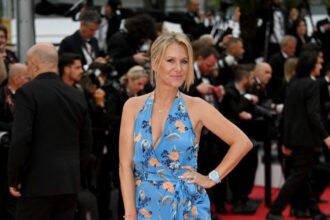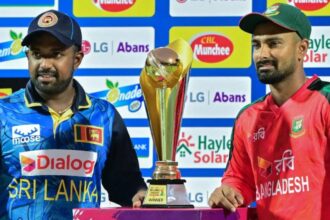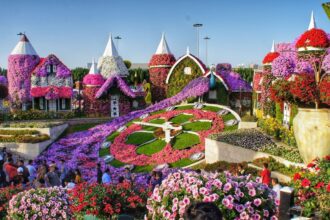In the UAE’s dynamic and inclusive sporting landscape, a quiet revolution is taking place—one that centers around empowerment, accessibility, and elite performance. At its heart are the dedicated coaches who work with Paralympic and adaptive athletes, reshaping traditional training systems to meet individual needs, embrace diverse abilities, and champion inclusion at the highest level.
Across Abu Dhabi, Dubai, Sharjah, and beyond, UAE coaches are developing specialized methodologies to help athletes with physical, visual, and intellectual impairments compete with pride, purpose, and power. These coaches are not simply adapting drills—they are innovating from the ground up, crafting bespoke programs that reflect each athlete’s unique physiology, equipment, goals, and personal circumstances.
Their work is not only preparing athletes for competition—it is redefining what athletic excellence looks like in a nation committed to leaving no one behind.
A Commitment to Inclusion and Excellence
The UAE has made significant strides in building a world-class adaptive sports ecosystem. Through national initiatives, specialized centers, and participation in global events like the Paralympic Games, the country is fostering an environment where differently abled athletes can thrive.
Coaches are at the core of this movement. With a deep understanding of both disability-specific challenges and high-performance standards, they act as technical guides, emotional anchors, and tireless advocates.
Their mission is clear: every athlete, regardless of ability, deserves access to elite training, quality competition, and the opportunity to represent their nation on the world stage.
Understanding Each Athlete’s Ability Profile
Unlike traditional coaching models, adaptive sports training in the UAE begins with a thorough understanding of an athlete’s ability profile—not just the nature of their impairment, but their mobility range, muscle control, reflexes, visual acuity, cognitive function, and even how they interact with assistive technology.
For instance:
- A wheelchair sprinter requires different upper-body strength development than a standing runner.
- A visually impaired swimmer needs pacing guidance and tactile cues in the pool.
- A powerlifter with cerebral palsy may require modified grip training and muscle stabilization techniques.
UAE coaches work closely with medical professionals, physiotherapists, and classification experts to create a fully customized plan for each athlete, combining technical knowledge with deep personal insight.
Specialized Equipment and Custom Training Environments
Equipment plays a crucial role in adaptive sports. From racing wheelchairs and prosthetics to audio beacons and handcycles, UAE coaches are trained to integrate sport-specific assistive technology into daily training.
They also tailor the physical environment. For example:
- Gym layouts are modified for better accessibility.
- Track lanes are widened or smoothed to suit racing chairs.
- Swimming lanes include orientation ropes for visually impaired athletes.
- Judo mats are adapted for better safety in para-combat sports.
These modifications allow athletes to train safely and efficiently, without being limited by external constraints.
Building Strength, Technique, and Endurance
Despite differing physical abilities, adaptive athletes train with the same intensity and focus as their able-bodied peers. UAE coaches design comprehensive programs covering:
- Strength and resistance training, adapted to each athlete’s functional capacity.
- Sport-specific technique development, often involving video analysis and biomechanics feedback.
- Endurance building, using customized cardiovascular plans such as hand cycling, aqua jogging, or upper-limb ergometry.
- Balance and core stabilization, especially crucial for athletes with lower-limb impairments.
Sessions are structured with precise progression models, ensuring measurable growth while reducing the risk of injury or fatigue.
Mental Toughness and Motivation
Training for Paralympic-level performance requires not only physical skill but immense mental resilience. UAE coaches play a critical role in fostering confidence, emotional regulation, and a high-performance mindset.
Many adaptive athletes have overcome significant personal and medical challenges. Coaches in the UAE work to turn that adversity into inner strength—through mentorship, goal-setting, and a consistent focus on self-belief.
They also address common psychological stressors, such as societal stigma, isolation, or fear of reinjury. By creating a positive, motivating environment, they ensure that athletes remain mentally equipped for the competitive journey.
Integrated Support Systems
To maximize results, UAE coaches collaborate within a multidisciplinary framework that includes:
- Sports medicine professionals
- Physiotherapists and occupational therapists
- Prosthetic technicians
- Nutritionists
- Psychologists
- Family counselors
This collaborative approach allows coaches to view each athlete holistically, aligning performance goals with health, well-being, and lifestyle needs.
Athletes benefit from a 360-degree support network—empowering them not only as competitors but as role models, public speakers, and community leaders.
Youth Development and Early Inclusion
Recognizing the power of early intervention, UAE coaches are actively involved in youth adaptive sports programs, ensuring that children with disabilities can experience movement, play, and competition from a young age.
Through school partnerships, inclusive PE curricula, and local clubs, coaches help young athletes:
- Develop coordination and strength
- Build social skills and self-esteem
- Discover personal talents
- Set long-term sporting goals
Early exposure not only supports athletic development—it fosters a lifetime of physical activity and belonging.
Success Stories from the Emirates
- A wheelchair racing coach in Abu Dhabi helped a young athlete qualify for his first international competition after just 18 months of training.
- In Dubai, a female jiu-jitsu coach now leads a para-jiu-jitsu team that competes across the Gulf, earning praise for both discipline and strategy.
- A Sharjah-based swim coach developed audio-tactile feedback drills for blind swimmers, resulting in podium finishes at regional championships.
- A cycling coach in Ras Al Khaimah trains handcyclists using customized terrain routes and personalized pacing strategies, helping athletes prepare for marathon distances.
Each story reflects not just the athletes’ resilience—but the deep innovation and empathy of their coaches.
Community Engagement and Public Perception
UAE coaches also contribute to changing the national narrative around disability. Through demonstration events, inclusion festivals, and public training sessions, they showcase adaptive sports as not just inspiring—but technically advanced, exciting, and worthy of mainstream attention.
Their advocacy helps remove social barriers and normalize participation, inspiring others with disabilities to explore sport and families to support their children’s aspirations.
Looking Ahead: A Nation Ready to Lead
As the UAE continues to invest in adaptive sports—through infrastructure, policy, and global partnerships—its coaches are poised to lead the next generation of Paralympic success.
Ongoing efforts include:
- Advanced coaching certification for adaptive disciplines
- National talent scouting programs for para-athletes
- Integration of adaptive training in mainstream clubs
- Collaborative research between coaches and universities
These steps are part of a broader vision: to make the UAE not only a competitor but a global leader in inclusive sports development.








